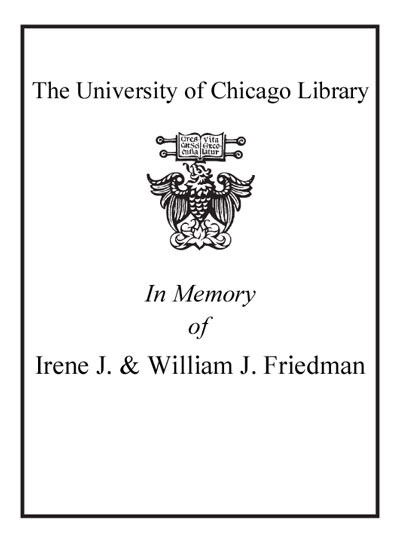Medieval trinitarian thought from Aquinas to Ockham /
Saved in:
| Author / Creator: | Friedman, Russell L. |
|---|---|
| Imprint: | Cambridge, UK ; New York : Cambridge University Press, 2010. |
| Description: | viii, 198 p. : ill. ; 24 cm. |
| Language: | English |
| Subject: | |
| Format: | Print Book |
| URL for this record: | http://pi.lib.uchicago.edu/1001/cat/bib/7990171 |
Table of Contents:
- Acknowledgments
- List of symbols, abbreviations, and conventions
- Introduction
- 1. The Trinity and the Aristotelian categories: different ways of explaining identity and distinction
- Background, and the relation account
- The emanation account and the foundations of the trinitarian traditions
- Emerging trinitarian traditions in the late thirteenth century: the case of John Pecham
- Henry of Ghent and the rejection of the relation account
- 2. The Trinity and human psychology: "In the beginning was the Word"
- The psychological model of the Trinity and its proper interpretation
- Concept theory and trinitarian theology
- 3. The Trinity and metaphysics: the formal distinction, divine simplicity, and the psychological model
- The divine attributes, the search for simplicity, and the possibility of trinitarian explanation
- Peter Auriol
- Francis of Marchia
- William Ockham
- 4. The Trinity, divine simplicity, and fideism-or: was Gilson right about the fourteenth century after all?
- Fideism, Praepositinianism, and the debate over personal constitution
- Walter Chatton
- Robert Holcot
- Gregory of Rimini
- Appendix: major elements in Franciscan and Dominican trinitarian theologies
- Bibliography of primary sources
- Annotated bibliography of selected secondary literature
- Index

